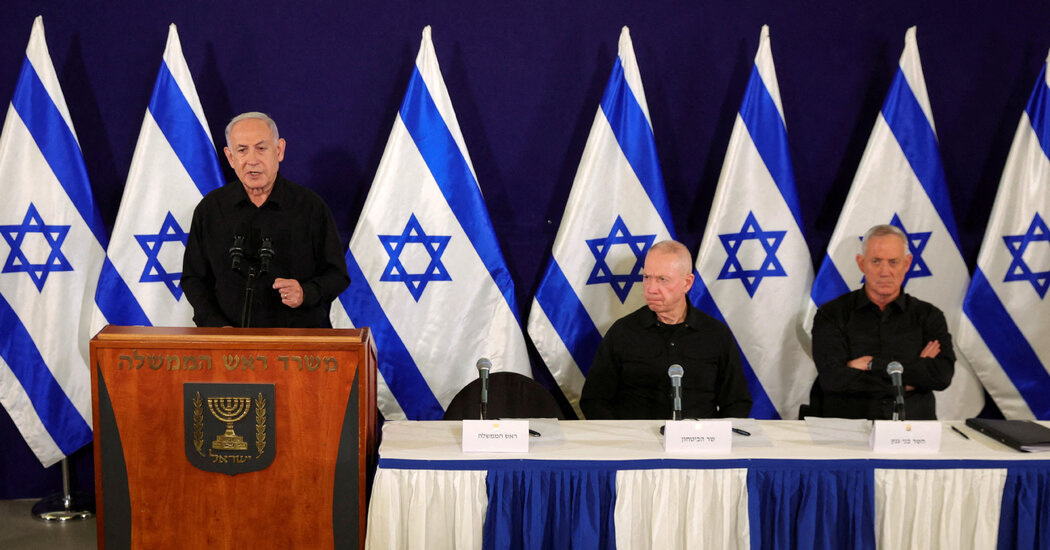The war cabinet’s functionality “doesn’t mean the personal accounts are deleted; they are just suspended,” said Yohanan Plesner, president of the Israel Democracy Institute, a nonpartisan research group. “There’s no harmony there,” he added, “just an understanding of the gravity of the moment.”
It is in many ways in Mr. Netanyahu’s interest, analysts said, to keep Israel in a state of war. The crisis allows him to stave off an inquiry into the failures of Oct. 7 and the political reckoning that will most likely follow.
For now, the war cabinet has not articulated at what point it will consider Hamas to be defeated and dismantled, nor has it delivered a clear vision for who will govern Gaza after the war. Its members have stuck to general formulations, saying that Israel will have to remain in charge of security for the foreseeable future but does not want to administer daily life in the enclave.
As the war in Gaza enters its third month, pressure is growing on Israel’s leaders to show results — internally, by crushing Hamas and freeing the remaining Israeli hostages; and externally, by stemming the spiraling civilian death toll and relieving a deepening humanitarian crisis. Those external pressures intensified this week when President Biden, Israel’s closest ally, called the military’s bombing campaign “indiscriminate” and disagreed with Mr. Netanyahu on the postwar role the Western-backed Palestinian Authority might play in Gaza.
Mr. Netanyahu has collided head on with the Biden administration about the so-called day after. The prime minister rebuffed an American plan for the Palestinian Authority, which administers parts of the occupied West Bank, to control Gaza after the war because, he said, the Palestinian Authority teaches its children to hate Israel, refused to denounce the Oct. 7 attack and supports terrorism.
Mr. Gantz and Mr. Eisenkot have kept quiet on the matter.
Mr. Netanyahu has entrusted Mr. Dermer and Tzachi Hanegbi, a loyal national security adviser, with planning Gaza’s future.
“There are two completely different world views” within the war cabinet over handling the aftermath, said Ms. Livni, noting that Mr. Gantz and his allies have not ruled out the American vision of a peace process that leads to some version of a Palestinian state.
At some point, because of the war, or because of disagreements over Gaza’s fate, the war cabinet is likely to crack. And then Israel will be back at war with itself.


